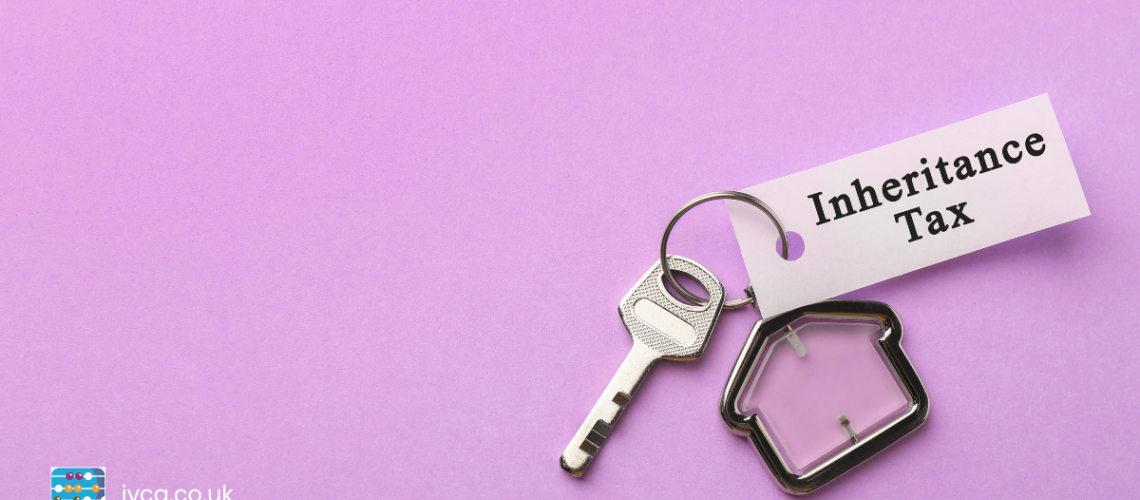Inheritance tax (IHT) has always been something to keep an eye on, but with Labour’s new IHT rules coming into effect, now is the time to make sure your estate planning is in order.
The good news? IHT is one of the few taxes you can actively take steps to reduce. With the right planning, you can ensure that more of your hard-earned wealth goes to your loved ones rather than the taxman.
Whether you see the new year as a time for resolutions or just a good moment to take stock of your finances, this is your reminder to check your estate planning. And if you run a business? Even more reason to get your financial plans in order.
Here’s what’s changing, what you need to know, and what you can do about it.
What’s changing?
In her 2024 Budget, Chancellor Rachel Reeves announced some major changes to IHT, with the biggest ones coming into effect in 2026 and 2027. These include:
- Pension pots will be included in IHT calculations from April 2027. Previously, pensions were largely IHT-free, making them a great vehicle for passing on wealth. That’s about to change.
- Nil rate bands will remain frozen until April 2030. No inflation-based increases, meaning more estates will be dragged into paying IHT.
- Changes to business and agricultural property relief from April 2026. The first £1 million of combined business and agricultural assets will remain tax-free, but anything above that will be taxed at 20%. The same applies to AIM shares.
The Office for Budget Responsibility estimates that each year, an extra 10,500 families will be caught out by the business and agricultural relief changes, and around 38,500 families by the pension tax changes.
If you don’t want to be one of them, now is the time to act.
| Need help Estate Planning, Business Planning, or both? Get in touch with us at [email protected]. We offer a planning service for business and personal planning, so our specialists can help with it all. |
Tips to start IHT planning
1. Get advice
Let’s start with the obvious—getting professional advice makes a massive difference. At JVCA, the friendly accountants, we help families and business owners put tax-efficient estate plans in place, ensuring they make the most of available reliefs and exemptions.
If you want to reduce your IHT bill and avoid unnecessary tax traps, let’s talk. Get in touch to book an Estate Planning Review.
2. Make or review your will
It’s shocking how many people don’t have a will—or who have one that’s completely out of date. Why? Because a good will does more than just divide up your estate—it can help prevent family disputes, protect assets, and minimise unnecessary tax bills.
For unmarried couples, this is even more crucial, as intestacy laws don’t recognise long-term partners, meaning assets might not go where you’d expect. For example, where the family home is not jointly owned.
If you own a business or a farm, the new business relief limits mean that the traditional mirror wills approach might no longer be tax-efficient. Previously, leaving everything to a surviving spouse made sense, but now, leaving business assets directly to children or in a trust might be the better move. At least from the point of view of minimising inheritance tax!
| Important note: If your will hasn’t been reviewed in the last couple of years, now is the time to check if it still works in your favour. With new tax rules continuously coming into effect, this is essential to establish financial security and peace of mind for both you and your family. Whilst it’s not so relevant to Inheritance tax, it’s also a good time to articulate your wishes and make sure you’ve arranged lasting powers of attorney. |
3. Spend more
The simplest way to avoid inheritance tax? Spend your money while you’re alive.
Of course, that’s easier said than done. Many people struggle to shift from accumulating wealth to spending it, but strategically using your money for yourself and your family now can reduce the taxable value of your estate later.
If you’re unsure how much you can afford to spend without affecting your long-term security, a financial planner can help you work it out.
4. Start gifting sooner rather than later
Gifting can be one of the best ways to reduce your IHT bill, but it has to be done properly. For example:
- Gifts made more than seven years before death are IHT-free.
- Gifts within seven years could be taxed, depending on their size and when they were made.
- Small annual gifts of up to £3,000 per year are immediately exempt from IHT.
But here’s the catch—once you give it away, it’s gone. If you’re worried about keeping control over your wealth, using a trust could be a smarter option.
| Don’t make drastic decisions off the back of the budget announcements! Instead, talk to us and we can help you put together a longer-term gifting plan that will be a lot more beneficial. |
5. Decide if you should get married
If you and your partner aren’t married or in a civil partnership, IHT becomes a much bigger issue.
Married couples and civil partners can pass everything to each other tax-free, which means the inheritance tax bill usually only arises when the second partner dies.
If you’re in a long-term relationship and co-habit but are not legally married, it might be worth considering whether tying the knot is a tax-efficient move.
On top of that, if you’re married and have a large pension, it may now be best to nominate your spouse as the sole beneficiary to avoid extra tax charges under the new rules.
6. Review how your assets are structured
Under the new business relief limits, it’s now crucial to review how assets are owned and distributed.
For example:
- If one spouse owns all the business assets, the surviving spouse could miss out on the £1 million tax-free relief on first death.
- If you inherit money from your parents, it might be worth skipping a generation to avoid increasing your own taxable estate.
- If you own a business, spreading ownership across family members could maximise the available IHT reliefs. That might mean the difference between the farm or business having to be sold in the event of death to fund the tax bill-or not.
| Getting the structure right now could mean huge savings later!So talk to a specialist like JVCA. Get in touch with us at [email protected] for an Estate Planning Review. |
7. Pensions: use it or lose it
The pension rule changes mean that, for many people, drawing down more from their pension sooner will make more sense.
If pensions will now be taxed as part of your estate, then instead of keeping your pension untouched, you may be better off:
- Taking out tax-free lump sums and gifting them.
- Using pension withdrawals for “normal expenditure from income” gifts, which can be IHT-free.
- Reducing pension value to keep your estate under £2 million, so you don’t lose the residence nil-rate band.
The tax impact of this varies based on your income and tax rate, so getting advice before making changes is key.
8. Consider life insurance to cover IHT
One way to ensure your heirs don’t have to deal with a big tax bill is to take out a whole-of-life insurance policy specifically to cover IHT.
- The policy should be written into trust, so it doesn’t form part of your estate.
- The payout can be used to cover IHT costs, meaning your beneficiaries don’t have to sell assets to settle the bill.
This can be especially useful for business owners and farmers who don’t want heirs to sell off part of the business or land just to pay tax.
What next?
If you’ve read this far, well done—you’re ahead of most people when it comes to estate planning! However, the changes coming in 2026 and 2027 mean now is the time to get your plan in order.
At JVCA, the friendly accountants, we help families and business owners navigate these tax changes and put smart, practical estate plans in place.
If you want to chat about how these changes affect you, email us at [email protected] and let’s get your estate planning sorted before the taxman takes more than his fair share.






